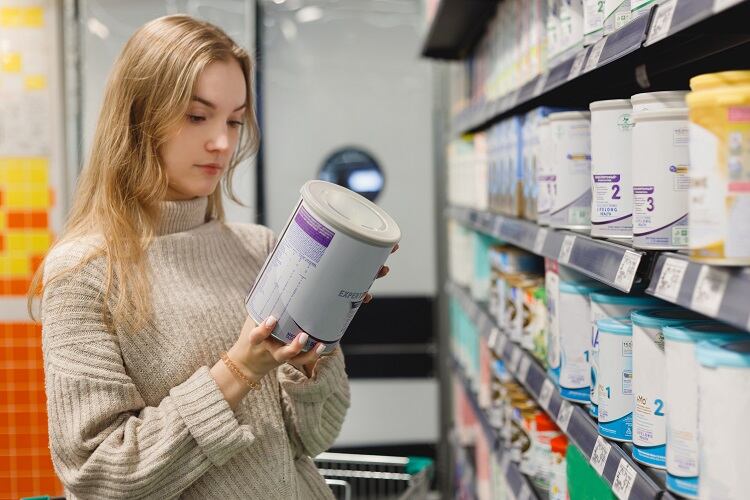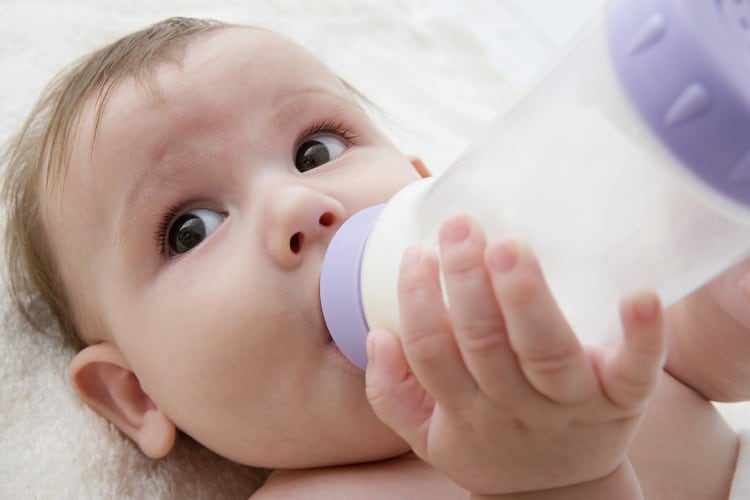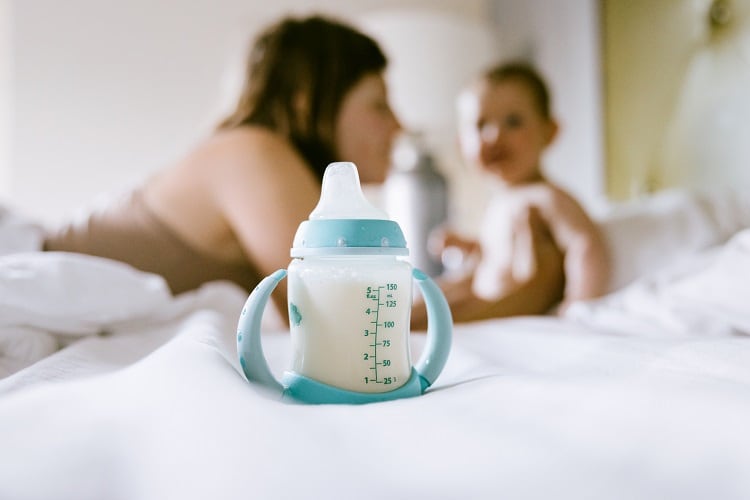French entrepreneurs Eugénie Pezé-Heidsieck and Eden Banon want better infant formula options for infants to improve the health and wellbeing of mother and child.
Instead of sticking with the status quo of cow’s milk-based formula, the duo is turning to cell culture to reproduce human milk from mammary cells.
Overcoming breastfeeding challenges
New mothers often feel pressure to breastfeed their babies. According to fresh research published in Psychiatry Research, this pressure is predominantly felt from healthcare providers and the media.
Being both in their early 30s, co-founders of French start-up Nūmi Pezé-Heidsieck and Banon, have observed this pressure and stigma negatively impacting friends and family. “Sisters, cousins, and friends have had a lot of challenges breastfeeding their babies, or have decided not to breastfeed and felt a lot of guilt,” Banon explained.
Added complications occur when babies are found to be allergic or intolerant to infant formula, the vast majority of which is made from bovine milk, and as a result is ‘inadequate’, we were told.
“The complexity of breast milk answers all the needs for babies’ development, ranging from brain and retina development to satiety regulators and boosting the immune system. It’s composed of over 1,500 constituents and trying to replicate that coming from another species is suboptimal.”
For the co-founders, a potential solution lies in cell culture. Pezé-Heidsieck and Banon established Nūmi (an abbreviation of ‘new milk’) in 2022.
Making breast milk in a lab
Cell culture technology involves growing cells under controlled conditions, usually outside of their natural environment. For Pezé-Heidsieck and Banon, this means recreating the mammary gland environment – the organ responsible for milk synthesis – for human cells to develop and produce said milk.
“We use multiple sources of effective cell lines and cultivate them in controlled conditions,” Banon told FoodNavigator. The start-up then isolates selected cells, cultivates them in controlled conditions, and feeds them nutrients to grow, duplicate, and produce human milk. This final step is purification, before being ready for human consumption.
“Cell culture technology allows you to replicate the whole phenomenon of lactation in vivo, in vitro using what nature does best – but now with the help of science,” said the co-founder.

Nūmi is yet to file for intellectual property protection, so is keeping technical details under wraps. What the co-founder did say is that in terms of nutrition, the start-up intends to be the ‘next best thing’ to breast milk. “We will try to come as close as possible, in terms of breast milk constituents.”
In saying that, the start-up is adamant that breast remains the best option for babies. “Breast is best and always will be. We don’t intend to replace breastfeeding,” stressed Banon. “We just intend to be the next best thing for women who don’t want to, or can’t breastfeed, as well as for families who don’t have access to breastfeeding options."
“Breastfeeding will always be the best way to feed your baby if you want to do so. We’re just out there for the women who have difficulty doing so.”
No, it’s not precision fermentation
Nūmi is not the first start-up working to disrupt the infant formula market with synthetic biology, which is not unsurprising given the potential market opportunity: this year the global infant nutrition market is expected to reach $88.3bn (€80.9bn) and reach upwards of $125bn by 2028, according to Mordor Intelligence.
US-based Pure Mammary Factors is another biotech using cell culture to develop human milk. In Singapore, TurtleTree is making bovine lactoferrin (which can be a prohibitively expensive ingredient in infant formula) using precision fermentation technology.
Banon stressed that Nūmi’s approach is not based on precision fermentation, whereby microorganisms are programmed to produce complex organic molecules such as protein. Both technologies have positives and negatives, the co-founder explained.
“Precision fermentation can be extraordinarily useful and cost effective to produce one constituent, which can already be a huge improvement if you’re looking at upgrading current infant formula products.
“What we’re trying to do here at Nūmi is to produce as many of those 1,500 constituents as possible, in order to bring a really new alternative to the table.”

Growing competition in the human milk-focused synthetic biology is a good sign, according to the co-founder, who said she is excited to see others in the field. “Mostly because it’s confirmation that what we do is of interest, both in term of the market and in terms of science. And also just because we strongly feel that this is a problem that needs solutions.”
Potential hurdles in a highly regulated market
Like all innovators working in cell culture, scaling is a major challenge. This comes in the form of financial and technical hurdles. What works at lab scale needs adjusting to work at a bigger scale, Banon explained. “That’s why we’re trying to build out our processes with scale in mind, from day-zero.”
Helping on the financial side is the recent closing of a €3m pre-seed round funded by Heartcore Capital, HCVC and Financière Saint-James.
Another obvious challenge for cell culture pioneers, and particularly those working in infant nutrition, is regulation. Cell-based milk is considered a novel food, and in Europe would need to receive pre-market approval from regulatory agencies. At the same time, infant nutrition is one of the most strictly regulated categories.
Nūmi is taking regulation ‘very seriously’, stressed Banon. Although still in the early stages of development, the co-founders are already working with regulatory experts within the field of novel foods.
The EU is lagging behind countries like Singapore and US, where precision fermentation-derived dairy and cell-based meat have passed official food safety tests. For this reason, it is expected Nūmi will initially launch into the US. “The US…is more welcoming of innovations in this field and have set up a more defined regulatory landscape for innovations like ours, while Europe is still evolving,” we were told.
“We very much hope that Europe will follow and that we’ll be able to bring our products to European and French families quite soon.”


